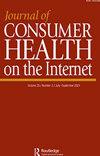Shared Decision-Making Among Women Diagnosed with Breast Cancer: A Phenomenological Study and Exploration into Health Literacy Education
IF 0.7
Q4 PUBLIC, ENVIRONMENTAL & OCCUPATIONAL HEALTH
引用次数: 3
Abstract
Abstract Little is known about how women with breast cancer experience making decisions in collaboration with their medical provider, and how these patient-provider interactions affect autonomy in choosing a treatment option. The purpose of the study is to examine the patient experience with shared decision-making (SDM) among women diagnosed with breast cancer and to explore more effective ways of educating patients when they are faced with a critical treatment choice. The research questions include: (1) What is the meaning of SDM from the perspective of women diagnosed with breast cancer? (2) What facilitates and inhibits SDM around medical treatments for women diagnosed with breast cancer? (3) What kind of health literacy education do women with breast cancer need to better support SDM? Using a phenomenological design and inductive thematic analysis procedure, a purposive sample of 6 women diagnosed with breast cancer were recruited from an academic medical center, consented, and interviewed. Ultimately, participants viewed the SDM process as empowering, self-advocating, collaborative, and inclusive. Participants described key concepts like trust, lack of understanding/ambiguity, social support, and religion/faith as important indicators for SDM. Participants also cited nutrition and mental health literacy, treatment and medication literacy, community education, and high-quality health information as priority areas for education. Conclusions and implications for practice include creating inclusive environments for patients, encouraging empowerment, utilizing diverse and multidisciplinary teams, and providing reliable health information. Future researchers should investigate how SDM may lead to increased satisfaction and improved treatment outcomes.乳腺癌患者的共同决策:健康素养教育的现象学研究与探索
摘要对于患有癌症的女性如何与医疗提供者合作做出决策,以及这些患者与提供者的互动如何影响选择治疗方案的自主性,我们知之甚少。本研究的目的是检查癌症诊断女性的共享决策(SDM)患者体验,并探索在患者面临关键治疗选择时教育患者的更有效方法。研究问题包括:(1)从癌症诊断女性的角度来看,SDM的意义是什么?(2) 是什么促进和抑制诊断为癌症妇女的医疗SDM?(3) 癌症女性需要什么样的健康素养教育才能更好地支持SDM?采用现象学设计和归纳主题分析程序,从一家学术医疗中心招募了6名被诊断为癌症的女性,并对其进行了同意和访谈。最终,参与者认为SDM过程是赋权、自我倡导、协作和包容的。参与者将信任、缺乏理解/歧义、社会支持和宗教/信仰等关键概念描述为SDM的重要指标。与会者还将营养和心理健康知识、治疗和药物知识、社区教育以及高质量的健康信息列为优先教育领域。结论和对实践的影响包括为患者创造包容性的环境,鼓励赋权,利用多样化和多学科的团队,以及提供可靠的健康信息。未来的研究人员应该研究SDM如何提高满意度和改善治疗结果。
本文章由计算机程序翻译,如有差异,请以英文原文为准。
求助全文
约1分钟内获得全文
求助全文
来源期刊

Journal of Consumer Health on the Internet
PUBLIC, ENVIRONMENTAL & OCCUPATIONAL HEALTH-
CiteScore
1.30
自引率
12.50%
发文量
32
期刊介绍:
The Journal of Consumer Health on the Internet is the only professional peer-reviewed journal devoted to locating consumer health information via the Internet. In this journal librarians and health information providers describe programs and services aimed at helping patients and the general public find the health information they need. From the Editor: "Studies have shown that health information is one of the major reasons that people worldwide access the Internet. As the amount of health information on the Web increases exponentially, it becomes critical that librarians-including public and medical librarians-be knowledgeable about what is available online and be able to direct users to reliable, accurate, quality information."
 求助内容:
求助内容: 应助结果提醒方式:
应助结果提醒方式:


